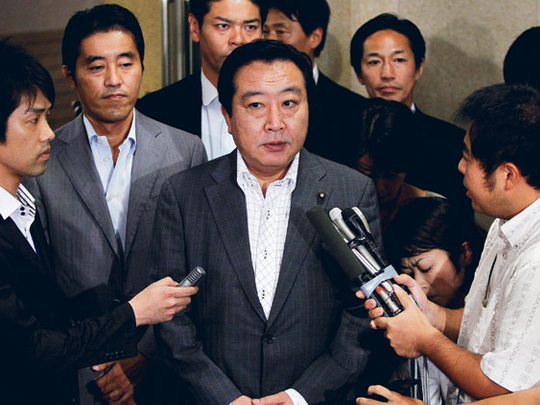
Tokyo: Japan is not ruling out market intervention to curb the yen's rise, government sources said yesterday, sending the strongest signal yet that the currency's march towards all-time highs may spur Tokyo into action.
Japanese officials have repeatedly tried to talk the yen down recently amid concern that it could cripple an export-driven recovery, but markets have doubted they would risk going solo and all but ruled out a coordinated intervention with other Group of Seven countries.
Government sources told Reuters intervention was possible and one said acting alone was always an option, echoing an earlier report in the Nikkei newspaper.
Still, investors remained sceptical whether intervention, unless coupled with bold monetary policy easing, would do much to stem a rise that took the yen to a 15-year high against the dollar and a nine-year peak against the euro on Tuesday, battering the Tokyo stock market
"Even if we see a short-term bounce in dollar/yen, I still think the risk is that we head lower before all is said and done," Robert Rennie, chief currency strategist at Westpac Bank in Sydney told Reuters Insider television.
Finance Minister Yoshihiko Noda told reporters he would respond appropriately as needed, an expression he has not used before in his efforts to curb a rally that threatens to make Japanese goods less competitive and erode exporters' profits, the lone bright spot in the country's fragile economy.
The sharp yen rise and resulting declines in Tokyo stocks have made it more likely that the Bank of Japan will further ease monetary policy before its scheduled rate review on September 6 and 7, sources told Reuters.
The Nikkei average yesterday fell 1.7 per cent to a 16-month low.
Bank of Japan Governor Masaaki Shirakawa will leave today to attend the Kansas City Federal Reserve's conference in Jackson Hole in the United States and return on August 30.
Emergency meeting
His trip may make it less likely, but not impossible, that the BoJ would hold an emergency meeting while he's away.
Speculators anyway doubt the Bank of Japan is ready for drastic steps, and say any more modest measures would likely have little lasting impact in braking the yen or spurring economic growth.
"If they really want to do something on the yen ... they have to create inflation expectations," said Martin Schulz, a senior economist at Fujitsu Research Institute.
"But I don't think the BoJ would go in that direction."
The yen has risen nearly 10 per cent against the dollar so far this year, with the US currency weighed down by doubts about the US recovery and falling Treasury yields, along with other global factors that Tokyo has little power to influence.
Japan has not intervened in the currency market since March 2004, when it ended a 15-month 35 trillion yen (Dh1.5 trillion) selling spree aimed at rescuing an economic recovery.
Companies divided
Nissan Motor yesterday said it could still exceed its global sales target despite worries about US economic recovery but the appreciating yen could have a big negative impact on its financial results. "Yen appreciation will have a big impact on us. We have to take countermeasures to minimise the impact," Chief Operating Officer Toshiyuki Shiga said. He added countermeasures included increased imports of car parts.
"We are not yet changing profit forecasts but there is a head wind — raw material costs are rising, the yen is appreciating ... We budgeted for 90 yen to the dollar, it is now 83," he said. In July, Nissan reported its strongest quarterly operating profit in more than two years as sales surged in China and other major markets, but it left its cautious guidance unchanged amid an increasingly murky outlook for demand.












